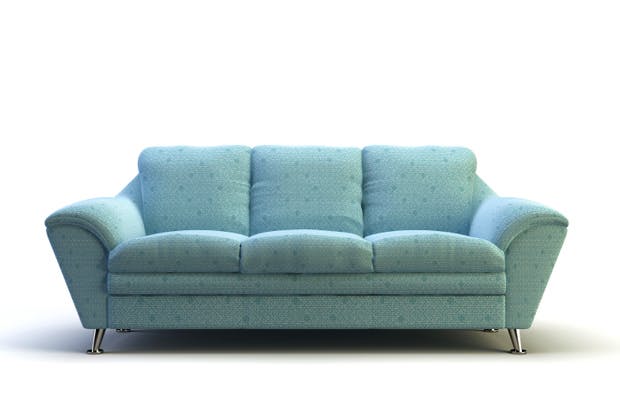Almost every popular commercial product owes its success to two different qualities. First, it does the job it is ostensibly designed to do pretty well. Secondly, it has some quality that you might call ‘limbic appeal’. It delights or soothes our unconscious mind in ways which defy objective measurement.
Much as it delusionally believes that it runs the show, the power granted to conscious reasoning within the brain is that given to a slightly colour-blind, utilitarian man when he buys a sofa with his wife. The man may have his own preferences, but he has a minimal role in the selection, involving as it does many complex factors that defy male comprehension (my wife has names for colours that seem not to exist on the visible spectrum). Yes, the man might influence things a bit — perhaps being offered the casting vote from a shortlist of two, or in rare instances attempting a veto; however, there is zero chance of his ever buying a sofa his wife does not like.
So designing products or -services purely by appeal to reason is like designing sofas to appeal to men. My ideal man-couch would have an in-built laptop stand and a Sky remote embedded in the armrest (and, come to think of it, a beer cooler). The reason no furniture maker offers anything of this kind is that they could not sell it: no woman would countenance having one in the house, nor indeed sleep with any man who owned such a thing.
Yet despite the dominance of unconscious decision processes, most businesses like to act as though those processes do not exist, preferring to attribute their success to something boringly objective.
In fact, little of Apple’s success can be credited to raw technological superiority: it is a psychology company that happens to make technology products. Dyson likewise owes the greater part of its appeal to the extra thrill created in our chimp brains when we watch the dirt accumulating inside its vacuum cleaners. I don’t claim Dyson would have succeeded had its products performed badly, but how many would have sold had the casing been opaque and beige?
Uber, similarly, will be described in the pages of the FT as though its success derives from efficiency alone. Yet the real disruption comes from the neuro-friendly map reassuring you that your car is on the way, and from the monkey-soothing way you pay (paying hurts less when done at a remove from consumption); an Uber that made you wait in the rain and required payment in cash would have gone nowhere.
In technology, this urge to downplay or devalue the role of unconscious mental processes is wrong — and, worse still, kind of French. It is born from that dualist idea that things are only legitimate if they emerge from the exercise of reason. This causes us to invest far too much effort in macho efforts to improve objective reality when it might be cheaper and easier to tickle our inner bonobos. Who needs Concorde when you can watch films on a plane? But engineers see that as cheating.
So too, it seems, do doctors. The Cambridge philosopher and psychologist Nicholas Humphrey has a theory of the placebo effect so startling and plausible that in a less rationalistic world, billions would be invested in exploring its implications. His idea, which I shall describe in detail next time, is that placebos are cues to the unconscious which license the body to commit more of its resources to healing itself. Seen through an evolutionary lens, it makes perfect sense.
Yet what percentage of medical research funding is spent on research into growing the placebo effect? Rounding down, I would guess zero.
Got something to add? Join the discussion and comment below.
Get 10 issues for just $10
Subscribe to The Spectator Australia today for the next 10 magazine issues, plus full online access, for just $10.















Comments
Don't miss out
Join the conversation with other Spectator Australia readers. Subscribe to leave a comment.
SUBSCRIBEAlready a subscriber? Log in